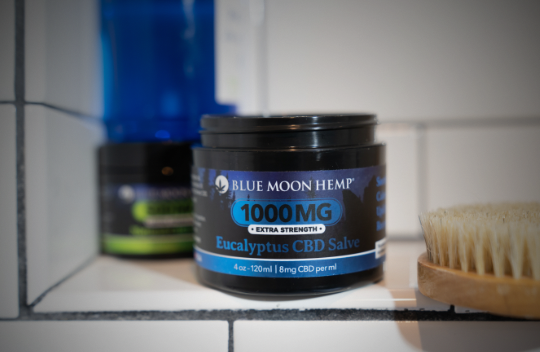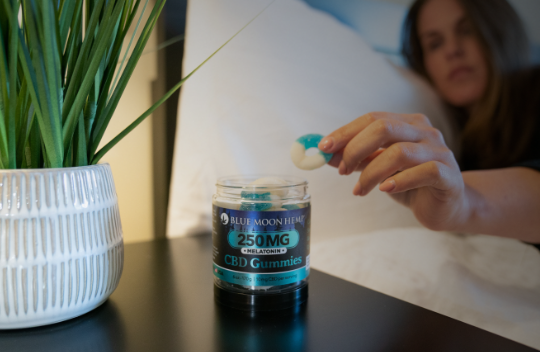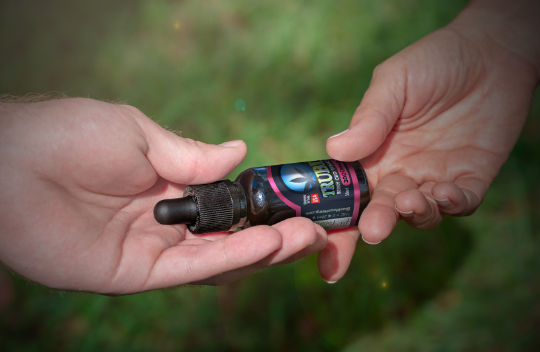A global pandemic has forced pretty much the whole world to take a hard look at our health and immunity, but your wellness isn’t something that you should only start caring about when a crisis arises. Immune support is a process, and an ongoing one at that – like building muscles at the gym, you’re not going to stack those quads if you skip leg day. Genetics and age matter, but you can still exercise (no pun intended) some control over the complex connectivity of cells, tissues and organs that make up your immune system, and you can do it with a little bit of CBD love along the way.
1. Do What You Know
Before you take a deep dive into some of the lesser-known wellness tips out there, it’s worth refreshing yourself on the basics. These tried and true methods have become clichés for a reason, and that reason is because they work.
Exercise regularly. As the U.S. National Library of Medicine says, physical activity helps purge bacteria from the lungs, reducing your risk of catching illnesses (including flu-like ones) while increasing the circulation of antibodies and white blood cells. Eat your fruits and veggies, drink alcohol only in moderation, drop the cigarettes and vape pens like the bad habits they are. And, yes, ALWAYS wash your hands.
2. De-stress with Self Care
You know what else the National Library of Medicine has to say on immunity? “Stress increases the chance of illness.” It’s that simple.
For 20 years, Carnegie Mellon University’s Laboratory for the Study of Stress, Immunity and Disease has been observing volunteers with a simple cold virus under quarantine. What they’ve found is that those who report less stress in their lives are also less likely to develop cold symptoms. Carnegie Mellon is hardly alone – other studies corroborate that stress is linked to weakened immunity and can even make wounds take longer to heal.
At Psychology Today, Tchiki Davis, Ph.D., recommends self-care de-stressing methods such as learning to say “no” to others when you’re overworked (an easier proposition in times of social distancing), turning to pets for blood-pressure-lowering companionship, or just plain going outside for a sunny solo walk.
In addition to adding some stress-busting activities into your daily routine, you can also lean on supplements to help build a foundation that can stand up to stress. CBD has been shown to be a great way to help manage feelings of stress and overwhelm, so treat yourself right with Blue Moon Hemp CBD Oil, which pack US-grown hemp cannabidiol to help you manage tension and negative feelings.
3. Get the D
No, not that “D.”
You already know that your diet is crucial to a healthy immune system. As Harvard Health Publishing puts it, “Like any fighting force, the immune system army marches on its stomach.” But one micronutrient that doesn’t get as much play as its peers is vitamin D. Daily recommended intakes of micronutrients such as zinc, iron, vitamin A, C and D can’t be underestimated in improving your immune response (but don’t bother megadosing on singular vitamins; your body doesn’t need a 3,000-percent daily dose of vitamin C).
The Physicians Committee for Responsible Medicine reports vitamin D can reduce the risk of viral infections (including those that affect the respiratory tract) and cut back on pro-inflammatory compounds in the body. It has also been shown to help prevent chronic disease ranging from cardiac complications to hepatitis. Find the “D” in milk, fatty fish like salmon, or foods specifically fortified with the vitamin. Ideally, your vitamin D levels should hover about 30 nanograms per milliliter all year round, which your doctor can help you check with an annual test.
4. Go to Bed (and Stay There for a While)
A seminal study from Psychosomatic Medicine is just one example of research on sleep and immunity, recording sleep patterns in nearly 50 patients to determine a clear correlation between sleep and immune system regulation. The study also finds that without sufficient sleep, the body doesn’t produce enough cytokines, a protein that bolsters immune response by targeting infection and inflammation. The National Sleep Foundation offers some advice that should be helpful to just about everyone with a bed, couch or even a bean bag in the basement: If your 7 to 9 hours of sleep per night is interrupted, stock up on naps throughout the day to decrease stress and strengthen your immune system.
References
Carnegie Mellon University: Laboratory for the Study of Stress, Immunity, and Disease
Harvard Health Publishing: How to Boost Your Immune System
The National Sleep Foundation: How Sleep Affects Your Immunity
The New York Times: Can I Boost My Immune System?
Physicians Committee for Responsible Medicine: Foods to Boost the Immune System
Psychology Today: Self-Care: 12 Ways to Take Better Care of Yourself
Psychosomatic Medicine: Disordered Sleep, Nocturnal Cytokines, and Immunity in Alcoholics
U.S. National Library of Medicine: Medline Plus: Exercise and Immunity




